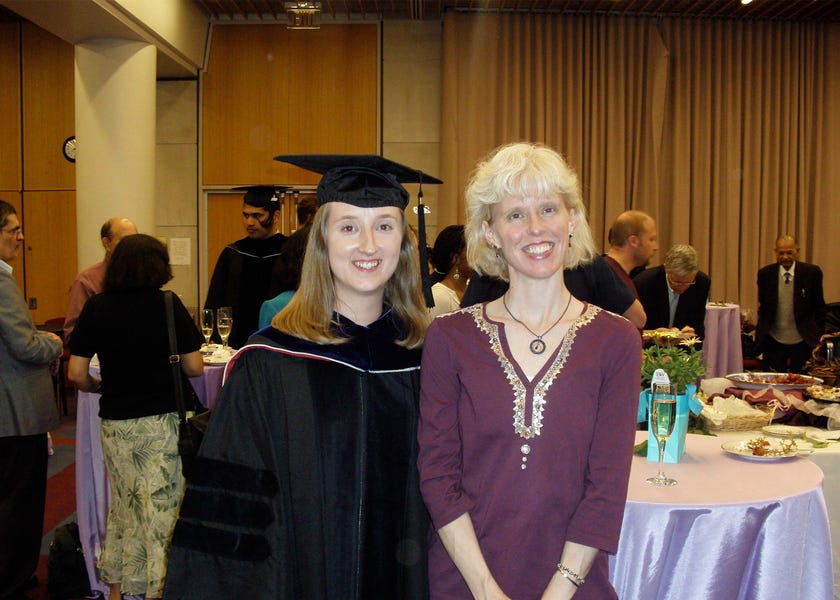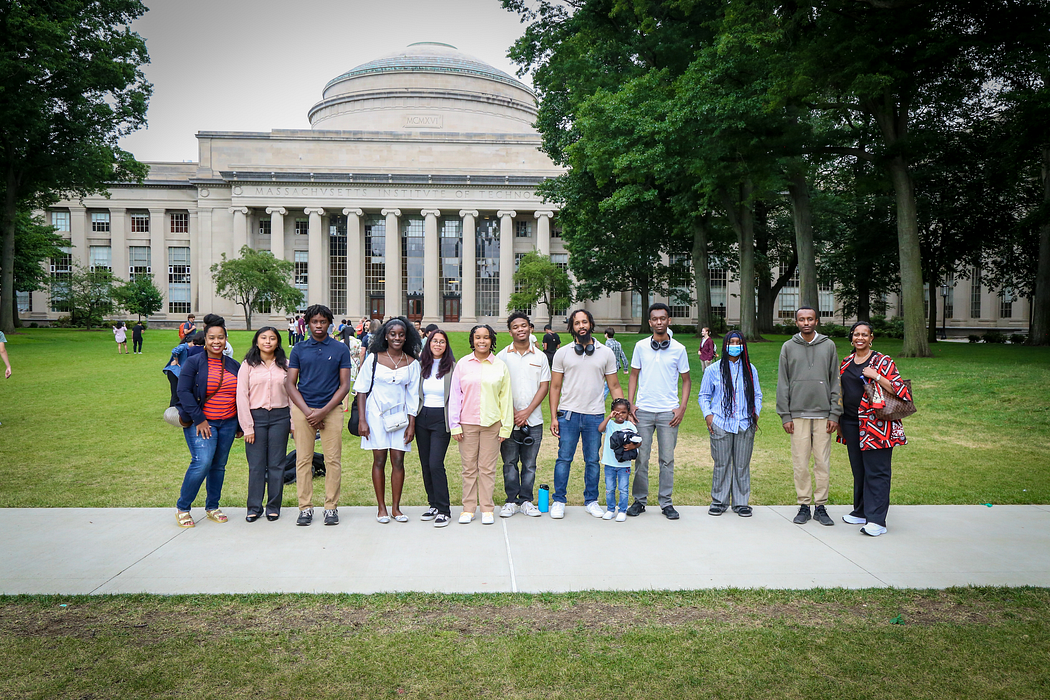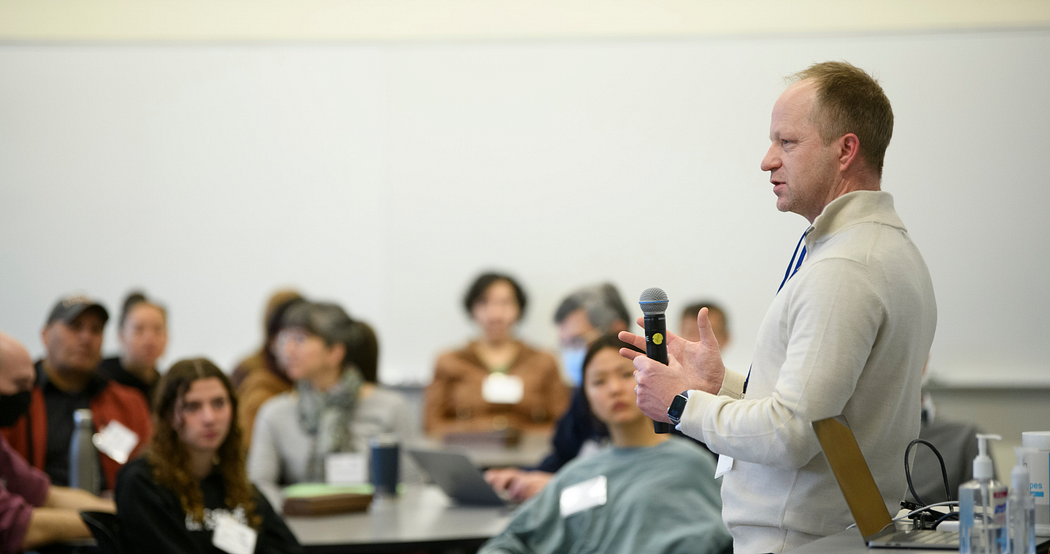By Scott Murray | MIT News
The rise of artificial intelligence resurfaces a question older than the abacus: If we have a tool to do it for us, why learn to do it ourselves?
The answer, argues MIT electrical engineering and computer science (EECS) Professor Devavrat Shah, hasn’t changed: Foundational skills in mathematics remain essential to using tools well, from knowing which tool to use to interpreting results correctly.
“As large language models and generative AI meet new applications, these cutting-edge tools will continue to reshape entire sectors of industry, and bring new insights to challenges in research and policy,” argues Shah. “The world needs people who can grasp the underlying concepts behind AI to truly leverage its potential.”
Shah is a professor in MIT’s Institute for Data, Systems, and Society (IDSS), a cross-disciplinary unit meeting the global need for data skills with online course offerings like the MITx MicroMasters Program in Statistics and Data Science, which Shah directs.
“With over a thousand credential holders worldwide, and tens of thousands more learners engaged since its inception, the MicroMasters Program in Statistics and Data Science has proven to be a rigorous but flexible way for skilled learners to develop an MIT-level grasp of statistics fundamentals,” says Shah.
The MicroMasters also forms the backbone of IDSS education partnerships, where an embedded MIT team collaborates with organizations to support groups of learners through the MicroMasters curriculum.
“Together with our first strategic partner in education, IDSS is providing graduate-level data science education through the Brescia Institute of Technology (BREIT) in Peru,” explains Fotini Christia, the Ford International Professor of the Social Sciences at MIT and director of IDSS. “Through this partnership, IDSS is training data scientists who are informing decision-making in Peruvian industry, society, and policy.”
Training the next generation
BREIT’s Advanced Program in Data Science and Global Skills, developed in collaboration with IDSS, provides training in both the technical and nontechnical skills needed to take advantage of the insights that data can offer. Members complete the MicroMasters in Statistics and Data Science (SDS), learning the foundations of statistics, probability, data analysis, and machine learning. Meanwhile, these learners are equipped with career skills from communication and critical thinking to team-building and ethics.
“I knew that artificial intelligence, machine learning, and data science was the future, and I wanted to be in that wave,” explains BREIT learner Renato Castro about his decision to join the program. Now a credential holder, Castro has developed data projects for groups in Peru, Panama, and Guatemala. “The program teaches more than the mathematics. It’s a systematic way of thinking that helps you have an impact on real-world problems and create wealth not only for a company, but wealth for the people.”
“The aim is to develop problem-solvers and leaders in a field that is growing and becoming more relevant for organizations around the world,” says Lucia Haro, manager of BREIT. “We are training the next generation to contribute to the economic development of our country, and to have a positive social impact in Peru.”
To help accomplish this, IDSS provides BREIT learners with tailored support. MIT grad student teaching assistants lead regular sessions to provide hands-on practice with class concepts, answer learner questions, and identify topics for developing additional resources.
“These sessions were very useful because you see the application of the theoretical part from the lectures,” says Jesús Figueroa, who completed the program and now serves as a local teaching assistant. Learners like Figueroa must go beyond a deep understanding of the course material in order to support future learners.
“Maybe you already understand the fundamentals, the theoretical part,” explains Figueroa, “but you have to learn how to communicate it.”
Eight cohorts have completed the program, with three more in progress, for a total of almost 100 holders of the MicroMasters credential — and 90 more in the pipeline. As BREIT has scaled up their operation, the IDSS team worked to meet new needs as they emerged, such as collaborating in the development of a technical assessment to support learner recruitment.
“The assessment tool gauges applicants’ familiarity with prerequisite knowledge like calculus, elementary linear algebra, and basic programming in Python,” says Karene Chu, assistant director of education for the SDS MicroMasters. “With some randomization to the questions and automatic grading, this quiz made determining potential for the Advanced Program in Data Science and Global Skills easier for BREIT, while also helping applicants see where they might need to brush up on their skills.”
Since implementing the assessment, the program has continued to evolve in multiple ways, such as incorporating systematic feedback from MIT teaching assistants on data projects. This guidance, structured into multiple project stages, ensures the best outcomes for learners and project sponsors alike. The IDSS MicroMasters team has developed new coding demos to help familiarize learners with different applications and deepen understanding of the principles behind them. Meanwhile, the MicroMasters program itself has expanded to respond to industry demand, adding a course in time series analysis and creating specialized program tracks for learners to customize their experience.
“Partner input helps us understand the landscape, so we better know the demands and how to meet them,” says Susana Kevorkova, program manager of the IDSS MicroMasters. “With BREIT, we are now offering a prerequisite ‘bootcamp’ to help learners from different backgrounds refresh their knowledge or cover gaps. We are always looking for ways to add value for our partners.”
Better decisions, bigger impact
To accelerate the development of data skills, BREIT’s program offers hands-on opportunities to apply these skills to data projects. These projects are developed in collaboration with local nongovernmental organizations (NGOs) working on a variety of social impact projects intended to improve quality of life for Peruvian citizens.
“I worked with an NGO trying to understand why students do not complete graduate study,” says Diego Trujillo Chappa, a BREIT learner and MicroMasters credential holder. “We developed an improved model for them considering student features such as their reading levels and their incomes, and tried to remove bias about where they come from.”
“Our methodology helped the NGO to identify more possible applicants,” adds Trujillo. “And it’s a good step for the NGO, moving forward with better data analysis.”
Trujillo has now brought these data skills to bear in his work modeling user experiences in the telecommunications sector. “We have some features that we want to improve in the 5G network in my country,” he explains. “This methodology helped me to correctly understand the variable of the person in the equation of the experience.”
Yajaira Huerta’s social impact project dealt with a particularly serious issue, and at a tough time. “I worked with an organization that builds homes for people who are homeless,” she explains. “This was when Covid-19 was spreading, which was a difficult situation for many people in Peru.”
One challenge her project organization faced was identifying where need was the highest in order to strategize the distribution of resources — a kind of problem where data tools can make a big impact. “We built a clustering model for capturing indicators available in the data, and also to show us with geolocation where the focal points of need were,” says Huerta. “This helped the team to make better decisions.”
Global networks and pipelines
As a part of the growing, global IDSS community, credential holders of the MicroMasters Program in Statistics and Data Science have access to IDSS workshops and conferences. Through BREIT’s collaboration with IDSS, learners have more opportunities to interact with MIT faculty beyond recorded lectures. Some BREIT learners have even traveled to MIT, where they have met MIT students and faculty and learned about ongoing research.
“I feel so in love with this history that you have, and also what you are building with AI and nanotechnology. I’m so inspired.” says Huerta of her time on campus.
At their most recent visit in February, BREIT learners received completion certificates in person, toured the MIT campus, joined interactive talks with students and faculty, and got a preview of a new MicroMasters development: a sports analytics course designed by mechanical engineering professor Anette “Peko” Hosoi.
“Hosting BREIT and their extraordinarily talented learners brings all our partner efforts full circle, especially as MicroMasters credential holders are a pool of potential recruits for our on-campus graduate programs,” says Christia. “This partnership is a model we are ready to build on and iterate, so that we are developing similar networks and pipelines of data science talent on every part of the globe.”







.png?width=446&height=355&name=mitx-story-haris(1).png)
.png?width=446&height=355&name=ocw-story-atou(1).png)















